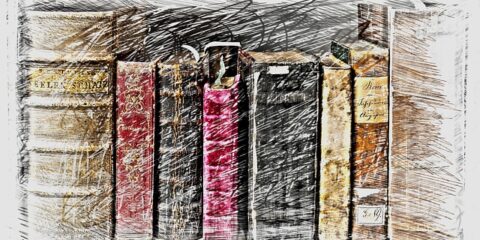| order | author’s name | Book name | explain |
| 34 | Chomsky | 《 syntactic structure 》 | Language is one of the most important research objects in the 21st century. People spend their whole life dealing with people with language and thinking through language; However, there are many old and difficult problems around language that can not be understood so far. Syntactic structure published in 1957 caused a Chomsky revolution in linguistics; This is a thorough study of the whole language theory. It not only arouses strong repercussions in the field of linguistics but also affects many peripheral fields and involves many basic problems. |
| 35 | Casille | The Philosophy of Symbol Forms | “What is man?”—— People have never given a decent answer to the most fundamental problem that philosophy should have solved. Cassirer’s starting point for solving this problem is different, that is, “man is a symbolic animal”. This opens a new channel. Because all cultures are based on the ability of people to form concepts, this ability enables us to invent and use artificial symbols and symbols. Cassirer believes that these “symbolic forms” are the objects that philosophy should focus on. |
| 36 | Rawls | On justice | Rawls’ theory of justice was published in 1971. None of the topics discussed are new, that is to say, these are all problems during the enlightenment, but he considered them under the new environment. In other words, this book marks the transformation of moral philosophy from modern to post-modern. |
| 37 | Foucault | Words and things | It is difficult to summarize this book in one sentence. It is really to say that “the scientific framework of discipline classification and evolution.”Today, scientific classification is a top priority. |
| 38 | Vanburen | In the leisure class | In addition to Marx’s classical definition, class division is generally used casually, but the basis of division is nothing more than politics, economy, and status. However, Veblen is an alternative thinker. He classifies people according to “leisure”, which is divided into leisure class and non-leisure class. As the leisure class has increasingly become a very important factor in modern life, it is necessary to explore the status and existence value of the leisure class. |
| 39 | Wei erhe | 《 cellular pathology 》 | Now western medicine is called “scientific”. The final analysis depends on establishing the cause of the disease on the basis of empirical evidence. This is exactly the main contribution of German medical scientist micro ear and. He was the founder of cellular pathology. In 1858, he published cytopathology, which completely expounded the cell theory and claimed that “all cells come from cells”. |
| 40 | Von Neumann, Morgenstein | Game theory and economic behavior | Von Neumann’s work marks a new era of mathematical economics in terms of method. His method proves that the axiomatic thought and abstract concepts of modern mathematics have great application value for practical problems. His philosophical views foreshadow the future work of mathematicians – mathematicians can choose topics to study in a wide range of fields. Great progress has been made and will be made in both game theory and the combination with economics. |
| 41 | Toynbee | 《 Historical Research 》 | Today’s news is tomorrow’s history. People of insight should always consider the relationship between the present and the past, the future development trend, and so on; This requires the establishment of a historical philosophy or view of history through the study and study of history. The theory of history is to build a navigation compass for these people. Toynbee’s historical research occupies a very important position in many historical theories because it contains a lot of theoretical generalizations and innovations. |
| 42 | Fernand Braudel | Material civilization, economy, and capitalism in the 15th-18th Century | In the 20th century, there was a great revolution in the field of historiography, that is, the rise of the “Yearbook school”. The Yearbook school opposes limiting history to the scope of political history and advocates studying the whole picture of history. Brodie is the representative of the second generation of the Yearbook school. Due to his work, the Yearbook school occupied the mainstream position after World War II, and its influence expanded from France to the world. |
| 43 | Russell | Freedom and organization | At the end of the 18th century, it can be said that all countries were on the same starting line, but such an amazing gap was created for various reasons. The speed of historical development and philosophy may not indicate the direction of historical development, but it can not predict the direction of historical development. The difference between the 19th century and the 20th century lies in the change in speed. Russell’s brilliance lies in his ability to point out the factors leading to this change. |
| 44 | Hobsbaum | The age of extremes | In the whole of history, it is too early to draw a conclusion about whether the 20th century is an era of carrying forward the past and forging ahead into progress and glory, or an insignificant episode. However, as an extreme era, it will certainly leave a lot of sequelae, which is worthy of our reflection. |
| 45 | Huntington | Conflict of civilizations and reconstruction of world order | In the 21st century, the fate of various civilizations is our first concern. This book is the result of a reflection on a turning point in history. Huntington was afraid that Islamic civilization and Confucian civilization would jointly defeat Christian civilization, but the former two could not be combined. His judgment was obviously wrong. However, whether the clash of civilizations can cause a new round of “decline of the west” is not impossible. |
| 46 | Camus | 《 pestis 》 | Since ancient times, mankind has been facing various disasters, but they are rarely prepared for disasters. This book about how human beings face disasters was written in the Hitler era, and many people feel hopeless. At this critical moment, Camus saw that the only correct attitude in the face of disaster was not to listen to the mercy of fate, nor to the incitement of authority and interest groups. |
| 47 | Lawrence | Lady Chatterley’s lover | This is a “forbidden book”, perhaps the most famous and veritable forbidden book. Although it is banned because of “sex”, it does not mean that its subject matter is only sex. In the book, Lawrence not only demands the liberation of a person’s real “sex”, but also demands to be liberated from the shackles of industrial civilization, traditional culture, and spirit and become a “liberated person”. These are the deep meaning of Lawrence’s thoughts. |
| 48 | Nietzsche | So said, Zarathustra | Two great thinkers in the 19th century had a continuous influence on the 20th century: one was Marx and the other was Nietzsche. This book is the pinnacle of Nietzsche’s works. It includes all of Nietzsche’s past thoughts, which are penetrated by two new concepts, Superman and eternal return. |
| 49 | Popper | The logic of scientific discovery | Popper’s logic of scientific discovery is a revolution in the philosophy of science. Popper said: “empirical science is a theoretical system. We can call cognitive logic a theoretical theory.” “Scientific theory is a universal proposition.” According to his theory, scientific theory “starts not from observation, but from problems”. The starting point of Popper’s whole scientific theory is the demarcation problem, that is, to find a criterion to distinguish the boundary between science and “pseudoscience”. |
| 50 | Toffler | 《 third-wave 》 | People look forward to the future, but at the same time, they are full of fear of the future; In a rapidly changing world, there is a lot of uncertainty, and people want to control it. In the second half of the 20th century, futurology came into being. The evaluation of futurists first lies in whether they can make more accurate predictions of what has not happened or is only in the bud. Toffler did that. His book was published in 1980, and it was in accordance with this blueprint in the last two decades of the 20th century. |
| 51 | Popova | secondary | Women account for half of mankind, but there are few works on women’s issues; The English translation of “second sex” became a best seller immediately after its publication in 1953. Although more than half a century later, countless books on feminism and women have been published, no book makes people feel such a strong scholarly atmosphere as this book. |
| 52 | Ji De | Counterfeiter | Today, when popular culture is so prosperous, Gide’s books will not appear among leisure readers. However, culture is also polarized. Where elegant culture develops and there is soil for development, Gide will not disappear. On the contrary, he will maintain his supreme position. His works are very conceptual. In this book, he tries to be a real person, but what is true? |
| 53 | Said | “Representatives of the Intellectual” | Although it is difficult to produce theoretical works on intellectuals, we chose Sayid’s book. Because we may be able to see the future of civilization from the freedom of thought and intellectuals. In the book, the question put forward by said is thought-provoking. Will there be intellectuals after Jia Kebi’s “the last intellectuals” was published in 1987? |
| 54 | mono | Contingency and necessity | There are many mysteries in life science! So far, we are still baffled by the delicacy and uniqueness of organisms. We still don’t know whether a man is a machine, whether biological evolution is an inevitable process, or where the world of life and death is. This book expounds the philosophical thinking of French biologist Manor on biological evolution. |
| 55 | Shavian | Man and Superman | Bernard Shaw is an English (Irish) playwright second only to Shakespeare and is roughly in the same position in the history of world drama. Most of his plays can be called “thought plays”, and one of his top works can be said to be “man and Superman”. The play truly shows Bernard Shaw’s own unique philosophy – vitality philosophy. |
| 56 | Simon | Science of artifacts | The development of experimental science in recent 200 years has brought us an artificial world; The manufacture of artifacts is the invention, imitation, improvement, combination and even the design mentioned in this book. Although design science has now become a professional field, what we need in the future happens to be bloggers like Simon rather than experts in narrow fields. Only they can design the world of future artifacts. |
| 57 | Taylor | 《 primitive culture 》 | The use of the word “culture” in the media is really rampant, but few people have even the coarsest definition of it; Taylor gave his research object “culture” a more precise definition. His primitive culture is recognized as the foundation work of cultural anthropology. On the surface, it is purely theoretical research; However, natural language and primitive thinking are of great significance to the discussion of artificial intelligence in the 21st century. |
| 58 | Whitehead | “In Science and the Modern World” | Mathematics plays an irreplaceable role in the emergence and development of modern science. Many people know and speak, but they don’t understand. In fact, Europeans are only 300 years ahead, but why can’t they keep up? Why is it so difficult for China to win the Nobel Prize? This can be said to be the “new Needham Problem”. In fact, if we study the history of 300 years as Whitehead did, we will have an answer. |
| 59 | Grauxus | War and peace act | Grotius’ great works have been published for nearly 400 years. Today, war and peace are still the number one issues in the world. Grotius has considered not holding war criminals, damages, and war costs accountable in exchange for guaranteed peace. Unfortunately, people do not seem to have learned enough wisdom from history to deal with the consequences of war. |
| 60 | Acol | The name of the rose | With the progress of technology, cases that could not be solved by fingerprints in the past can be solved by DNA today; However, the matter of the soul is uncertain. Symbolic expression is a very complex thing. Symbolic technology is far less convenient than gene identification. However, the semiotic society brings us a new and unimaginable world. This is the magic of Eco’s novels. |
| 61 | Decare | On Methods | There are still different opinions on what is the scientific spirit. However, the scientific spirit will certainly lead to the development of science, and its starting point must be the desire for knowledge. Descartes tells the process of his exploration in the twenty years after he came out of school at the beginning of his book on methods, and creates his own unique theories and methods in the process of exploration. This is the Cartesian philosophy system, and its core is epistemology. It was Descartes who turned philosophy in the right direction. |
| 62 | Bacon | On academic progress | For 400 years, although people have long enjoyed the benefits brought by modern science, people’s minds are not necessarily less dogmatic, biased, superstitious, stupid, and crazy eccentric ideas than in ancient times. Bacon’s great contribution is to list four “idols” or illusions that make people fall into such mistakes. |
| 63 | Hayek | The road to slavery | Hayek is well-known as an economist and won the 1974 Nobel Prize in economics. However, his political philosophy is more innovative and influential. Hayek’s thought is always a little untimely, but it is very profound in the long run. He is a thoroughly liberal. His insights cannot be abandoned by us because of the relationship between ideology. |
| 64 | Orwell | <1984> | In the anti-utopian and anti-totalitarian works of the 20th century, who can write better than Orwell? There are not only Kafka’s personal situation, A. Huxley’s scientific and technological rule, but also Koestler’s realism. “1984” is a cautionary work, just like Malthus and Carson. |
| 65 | Kafka | 《 bring to trial 》 | Kafka’s immortality lies in that he asks far more questions than he answers. In the castle, he said that “asking questions is the main thing”. In fact, this is the true meaning of science and life. The thought comes from the exploration of questions, and the exploration process may be more meaningful than picking up ready-made answers. |
| 66 | C.P. Snowe | Two cultures | Snow’s argument between the two cultures is simple: scientists should have read Shakespeare, while writers should know what the second law of thermodynamics says. Unfortunately, this situation is becoming more and more difficult to achieve. At the beginning of the 21st century, there was nothing but shouting the slogan of “the combination of science and humanities”, and the one-dimensional man was reduced to a zero-dimensional man. However, following the track of the history of thought defined in this book, it is possible to rise to three dimensions, four dimensions, and even become “Superman”. |
The ranking is based on the data of popular books all over the world. I hope you like it for reference and learning.






